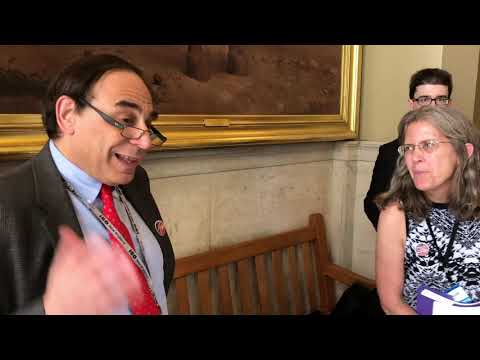General Assembly fast tracking asthma inducing biomass incinerator for high rolling campaign contributor
This has all happened before… H8020, legislation “clearly designed to benefit one company” and “to benefit one guy,” is being fast tracked through the General Assembly. If passed, the legislation will classify “biomass incineration” as a renewable source of energy under the net metering statute. According to EcoRI, who wrote about the Senate bill, “The bill was written to help
May 16, 2018, 10:00 am
By Steve Ahlquist
This has all happened before…
H8020, legislation “clearly designed to benefit one company” and “to benefit one guy,” is being fast tracked through the General Assembly. If passed, the legislation will classify “biomass incineration” as a renewable source of energy under the net metering statute. According to EcoRI, who wrote about the Senate bill, “The bill was written to help the sale of electricity from a nearly 9-megawatt power plant that runs on wood chips and construction debris being built in Johnston by Mark DePasquale of Green Development LLC of North Kingstown.”
It was two years ago that the General Assembly last tried to grant DePasquale some favors for his family’s $64,000 in campaign contributions, according to the Providence Journal. Back then it was disgraced Representative John Carnevale (Democrat, District 13, Providence, Johnston), not Marvin Abney (Democrat, District 73, Newport), heading up the House Finance Committee. Back then DePasquale was trying to shift the grid connection costs for his wind project onto ratepayers.
In an open letter, Climate Action Rhode Island (CARI) outlined four facts about the bill:
Fact #1: Biomass incineration is not a low-carbon power source. Multiple peer-reviewed studies have shown that burning wood emits 50 percent more CO2 per megawatt generated than even coal. That is why biomass was specifically excluded from the 2011 net metering bill.
Fact #2: Biomass incineration releases dangerous soot and other air pollutants. If this bill passes, Rhode Island children will experience more asthma, and Rhode Island adults will experience more cases of lung disease and stroke.
Fact #3: This bill specifies no pollution restrictions. It specifies no limits on emissions, on the types of biomass that are eligible, or on the cleanliness of the incinerator inputs.
Fact #4: This bill is designed to benefit one developer, a prolific campaign donor, giving it the stench of a backroom deal. The Providence Journal reported in 2016 that Mark DePasquale’s family and employees had given over $64,000 to House leaders. It appears that Mr DePasquale’s quid pro quo is a fast-tracked change to the law that benefits his new venture.
Yesterday I saw Attorney Seth Handy, who has been lobbying the General Assembly on behalf of the project, entering the offices of Governor Gina Raimondo. Inquiries as to the nature of the visit have gone unanswered.
At this point, the only way to stop this bill is to call your state representative or senator and remind them that this is an election year.
Here’s Jerry Elmer, president of the Environment Council of Rhode Island, explaining the bill ahead of the House Finance vote:
UpriseRI is entirely supported by donations and advertising. Every little bit helps:
![]()







